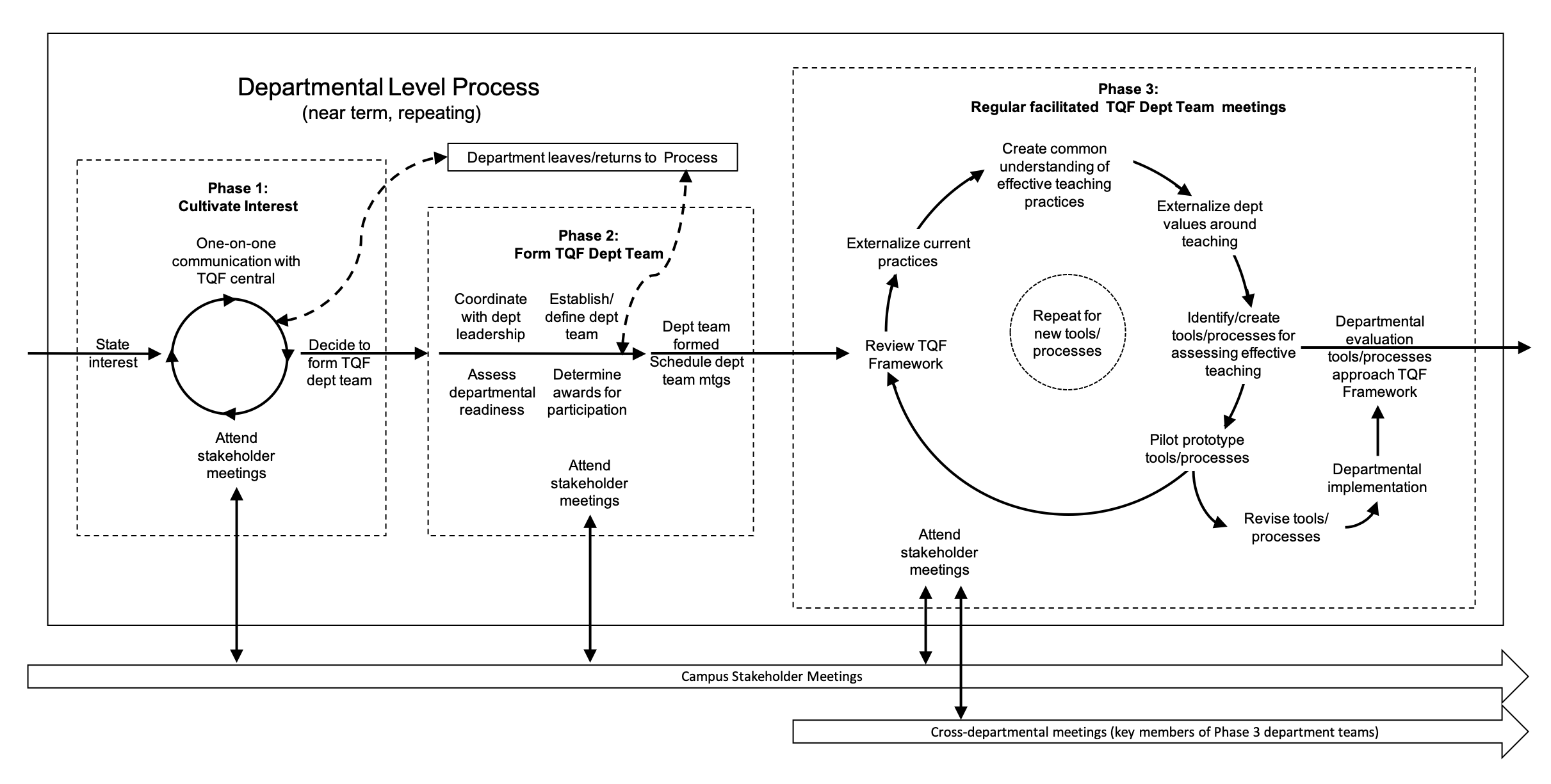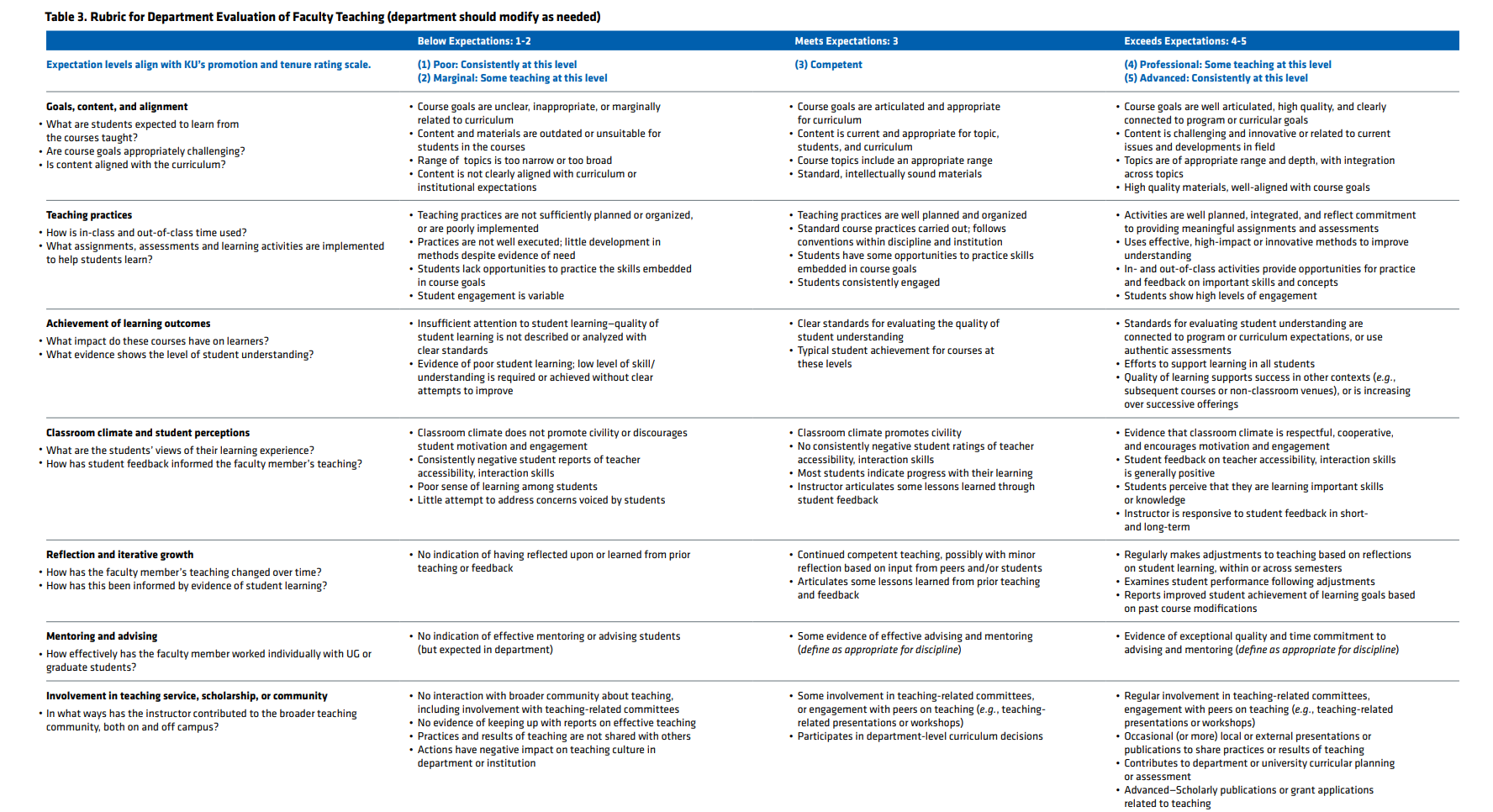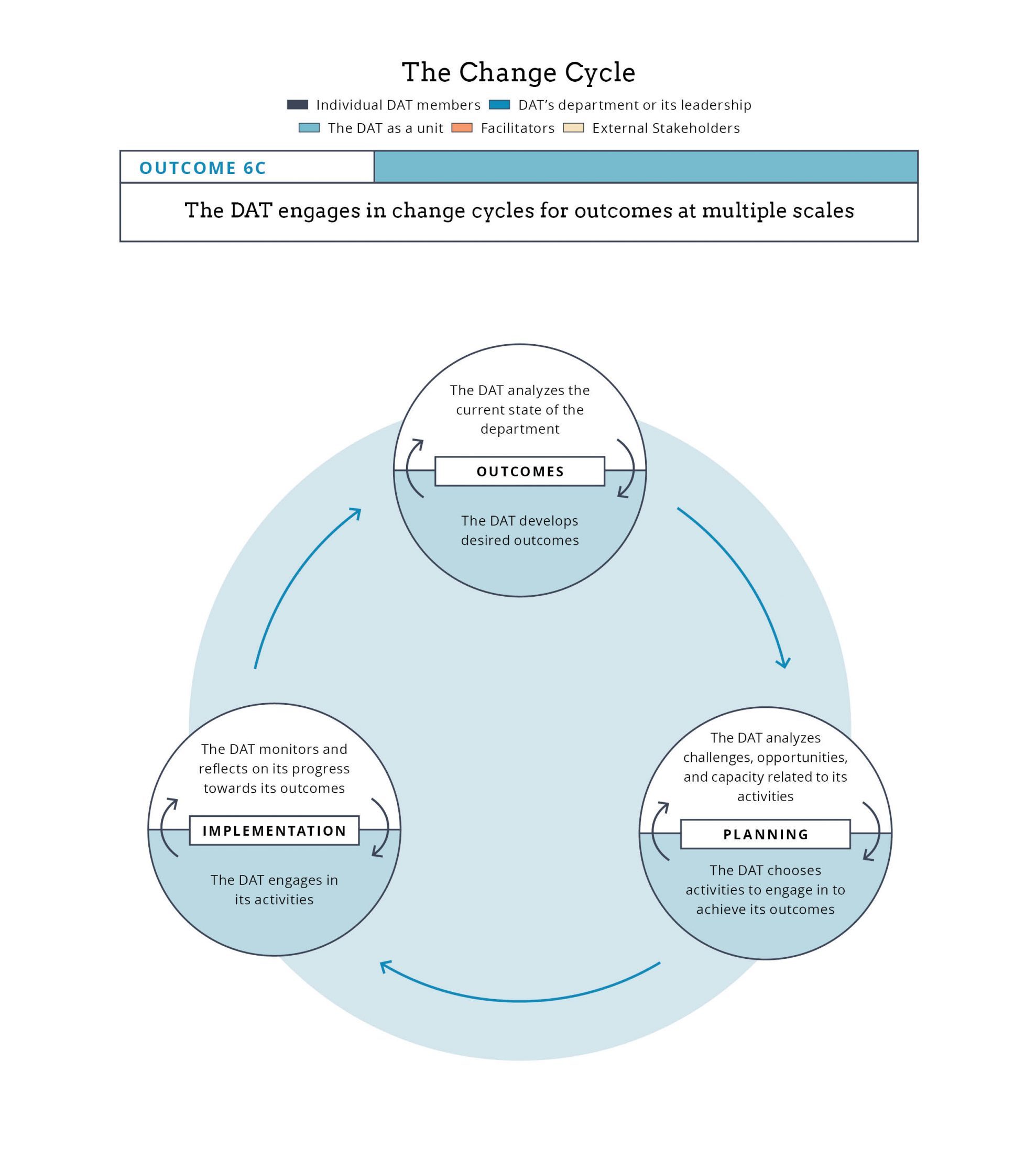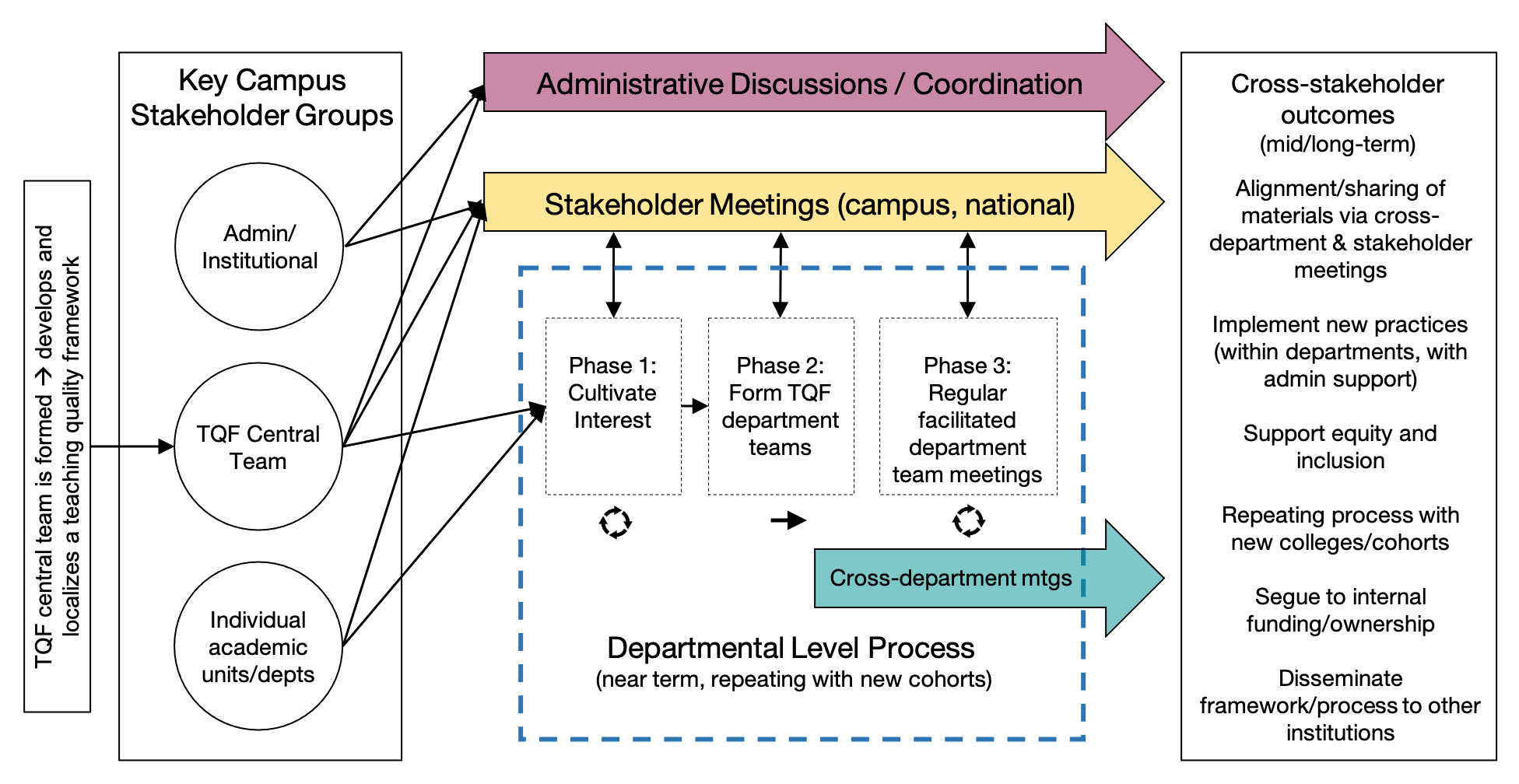Sites -> CU
Visit the CU TEval webpages.
 Seeded by the Association of American Universities (AAU)’s STEM Education Initiative, TEval at CU includes
three categories of stakeholders. TQF-central (a team of individuals housed in the Center for STEM
Learning) manages the overall project, supports departmental engagement and contextualization
of the framework, builds campus-wide community across all stakeholders, and coordinates with
the administrative and institutional stakeholders to ensure campus wide support and alignment.
Departments are facilitated using a Departmental Action Team (Corbo et al., 2016) approach, to
contextualize the framework to local disciplinary culture, to establish processes for enacting
evaluation, and to link these to departmental policies and structures. Campus-wide and
administrative stakeholders include the associate provosts, deans, the faculty assembly, institutional
research, information technology, the student council, and other campus groups committed to
enhancing educational practice and faculty evaluation.
Seeded by the Association of American Universities (AAU)’s STEM Education Initiative, TEval at CU includes
three categories of stakeholders. TQF-central (a team of individuals housed in the Center for STEM
Learning) manages the overall project, supports departmental engagement and contextualization
of the framework, builds campus-wide community across all stakeholders, and coordinates with
the administrative and institutional stakeholders to ensure campus wide support and alignment.
Departments are facilitated using a Departmental Action Team (Corbo et al., 2016) approach, to
contextualize the framework to local disciplinary culture, to establish processes for enacting
evaluation, and to link these to departmental policies and structures. Campus-wide and
administrative stakeholders include the associate provosts, deans, the faculty assembly, institutional
research, information technology, the student council, and other campus groups committed to
enhancing educational practice and faculty evaluation.
The Teaching Quality Framework Initiative (TQF) has developed a toolkit of resources for departmental change efforts related to transforming teaching evaluation. This Toolkit is meant to provide institutions and departments with tools and guidance to help them engage in a process of teaching evaluation transformation without the direct support of a group like the TQF. The Toolkit is designed to have two major sections: one aimed at departments and faculty members engaging in the transformation process, and one aimed at institutions looking to support this type of work. At the moment we are focusing on the departmental / faculty level resources of the toolkit. While this section, along with an overview section that provides an introduction and background on TQF and teaching evaluation, are still a work in progress, we are making it available in its beta form.
Departments engaged in three phases for enacting change.
- Phase 1 identifies department-wide interest, and includes departmental representatives in the campus-wide stakeholder meetings.
- Phase 2 identifies a working group of faculty, associated processes, and reward structures for the group.
- Phase 3 is a roughly year-long process where the departmental working team engages in facilitated discussions to identify appropriate forms of data, improved rating systems, observation protocols, etc.


Each semester, there are opportunities to share materials and approaches across disciplinary units. Additionally, once or twice per semester, a campus-wide stakeholder group gathers to align the disciplinary-based efforts with each other to campus priorities and resources. As of May 2020, 19 units were involved across three colleges: Arts and Sciences (A&S), Engineering, and Business. Eight departments have participated in the phase 3 process, creating new tools and processes for evaluating teaching in their units. The TQF initiative also partners with the Boulder Faculty Assembly to address calls for improved teaching evaluation (BFA, 2018), and the Office of Institutional Research piloting a new student evaluation of teaching (SET) rating system and new models for representing and using these SET data. Each of the colleges (A&S, Engineering, and Business) has provided support to fund staff at TQF-Central to enact change in their units, and have or are developing statements of commitment to enhanced teaching evaluation that align with the TQF approach.
DATs
Our project cultivates department-level changes in university departments through Departmental Action Teams (DATs) (Corbo et al., 2016; Reinholz et al., 2017). DATs consist of faculty, students, and staff in a single department working on a broad-scale issue related to undergraduate education. External facilitators with expertise in education, organizational change, and facilitation support DAT members in enacting departmental change and growing as change agents. DATs have chosen to focus on a variety of issues including curricular changes (e.g., improved curricular alignment) and cultural changes (e.g., improving recruitment and retention of women and underrepresented minority students). While our project does not prescribe the specific changes DATs make, our longterm goal is that the DAT and the DAT’s department make progress toward the following six Core Principles (Quan et al., 2019):
- Students are partners in the educational process.
- Work focuses on achieving collective positive outcomes.
- Data collection, analysis, and interpretation inform decision-making.
- Collaboration among group members is enjoyable, productive, and rewarding.
- Continuous improvement is an upheld practice.
- Work is grounded in a commitment to equity, inclusion, and social justice.

Integration
General structure

University-Wide Participation
- College of Engineering and Applied Sciences
- College of Arts and Sciences
- Leeds Business School
